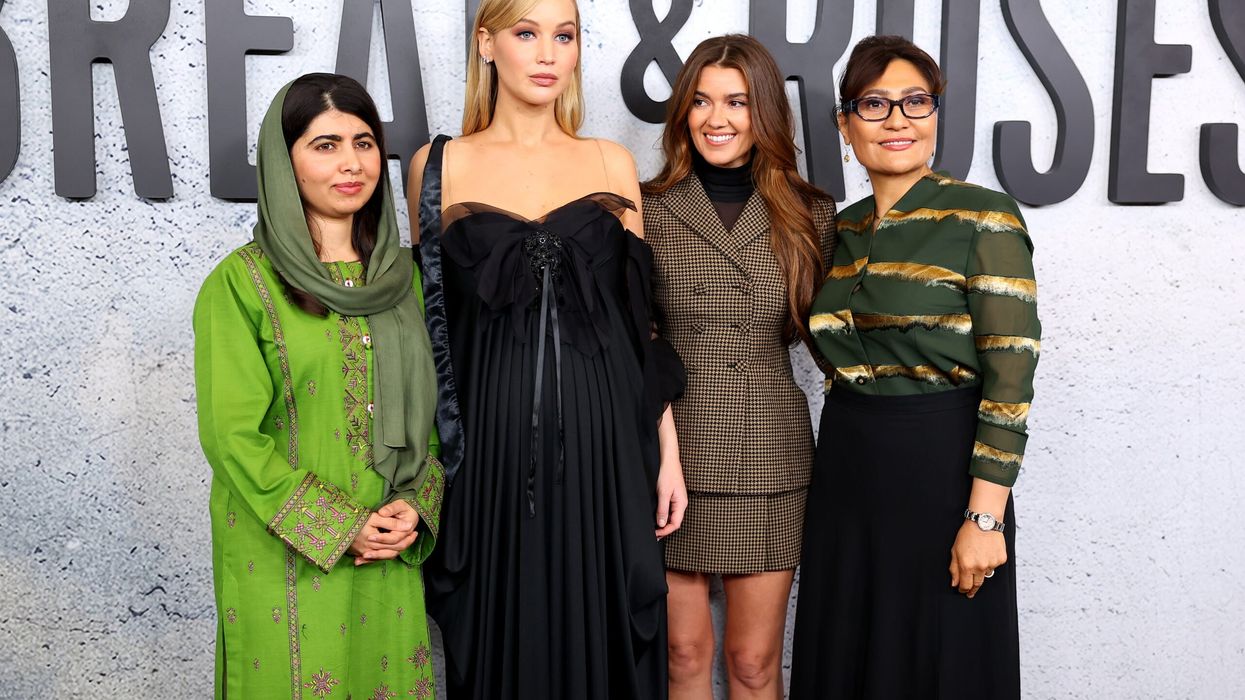A RARE inside account of the Taliban authorities’ impact on Afghan women hits screens this month with the smartphone-filmed documentary Bread & Roses.
Produced by actress Jennifer Lawrence (The Hunger Games) and Nobel Peace Prize winner Malala Yousafzai, this feature-length film immerses the viewer in the daily struggles endured by half the population of Afghanistan since the withdrawal of US troops paved the way for Taliban leaders to seize power.
“When Kabul fell in 2021 all women lost their very basic rights. They lost their rights to be educated, to work,” Lawrence said in Los Angeles.
“Some of them were doctors and had high degrees, and then their lives were completely changed overnight.”
The documentary, which debuted at Cannes in May 2023, was directed by exiled Afghan filmmaker Sahra Mani, who reached out to a dozen women after the fall of Kabul.
She tutored them on how to film themselves with their phones – resulting in a moving depiction of the intertwined stories of three Afghan women.
Zahra, a dentist whose practice is threatened with closure, is propelled to the head of protests against the Taliban government.
Sharifa, a former civil servant, is stripped of her job and cloistered at home, reduced to hanging laundry on her roof to get a breath of fresh air.
And Taranom, an activist in exile in Pakistan, who watches helplessly as her homeland changes.
“The restrictions are getting tighter and tighter right now,” Mani said on the film’s Los Angeles red carpet.
And hardly anyone outside the country seems to care, she said.
“The women of Afghanistan didn’t receive the support they deserved from the international community.”
Since their return to power, Taliban officials have established a “gender apartheid” in Afghanistan, according to the UN.
Women are gradually being erased from public spaces: Taliban authorities have banned post-secondary education for girls and women, restricted employment and blocked access to parks and other public areas.
A recent law even prohibits women from singing or reciting poetry in public.
The Taliban authorities follow an austere brand of Islam, whose interpretations of holy texts are disputed by many scholars.
“The Taliban claim to represent the culture and religion while they’re a very small group of men who do not actually represent the diversity of the country,” Yousafzai, an executive producer of the film, said.
“Islam does not prohibit a girl from learning, Islam does not prohibit a woman from working,” said the Pakistani activist, whom the Pakistani Taliban tried to assassinate when she was 15.
The documentary captures the first year after the fall of Kabul, including moments of bravery when women speak out.
Afghan women face restrictions under the new regime“You closed universities and schools, you might as well kill me!” a protester shouts at a man threatening her during a demonstration. These gatherings of women – under the slogan “Work, bread, education!” – are crushed by Taliban authorities.
Protesters are beaten, some are arrested, others kidnapped.
Slowly, the resistance fades, but it doesn’t die: some Afghan women are now trying to educate themselves through clandestine courses. Three years after the Taliban seized power from a hapless and corrupt civilian administration, no countries have officially recognised their new government.
In the wake of Donald Trump’s re-election to the US presidency, Taliban leaders have made it known that they hope to “open a new chapter” in relations between Kabul and Washington, where a more transactional foreign policy outlook is expected to prevail.
For Mani, that rings alarm bells. Giving up on defending the rights of Afghan women would be a serious mistake – and one the West could come to regret, she said.
The less educated Afghan women are, the more vulnerable their sons are to the ideology that birthed the Al Qaeda attacks of September 11, 2001.
“If we are paying the price to[1]day, you might pay the price tomorrow,” she said. Bread & Roses began streaming on Apple TV+ last Friday (22). (AFP)













